MercoPress. South Atlantic News Agency
Tag: soybean
-
Wednesday, February 28th 2018 - 09:37 UTC
Prolonged drought wrecking soybean and corn crops, threatens Argentina's growth
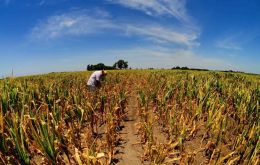
A prolonged drought wreaking havoc on Argentina's soybean and corn crops could threaten the country's economic performance in 2018, an official said, as the country seeks to grow for a second straight year after several years of biting recession.
-
Saturday, February 24th 2018 - 09:10 UTC
Drought hits Argentina's soybean and corn crop estimates: 10% and 12% down
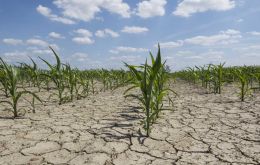
The lack of rain triggered by the La Nina weather phenomenon has prompted the Rosario Exchange to cut its forecast of Argentina’s 2017/2018 corn and soybean crop by 12% and 10%, respectively, making it one of the most bearish analysts in the market.
-
Friday, February 23rd 2018 - 09:13 UTC
Argentine farmers agree to pay royalties to seed companies like Monsanto
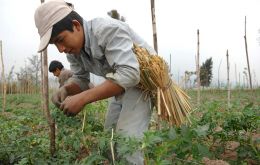
Argentine farmers have agreed to pay perpetual royalties when they replant genetically modified seeds made by companies like Monsanto Co, a deal that could allow farmers access to the newest biotechnology.
-
Thursday, February 22nd 2018 - 09:20 UTC
US share of global sales of soybean and grains to shrink as South American competition grows
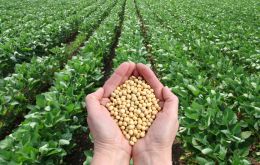
The U.S. Department of Agriculture sees U.S. corn and soybean exports generally increasing over the coming decade but the U.S. share of global sales will shrink as competition from South American producers heats up, the government said in its annual report.
-
Wednesday, February 21st 2018 - 08:48 UTC
Brazil forecasts record 2027/28 soybean crop of 115.6 million tons
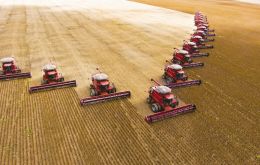
Brazil's 2017/18 soybean crop is expected to reach 115.6 million tons, a record volume, 1.2% above the previous record last year of 114.2 million tons, according to an updated forecast from consultancy Safras & Mercado.
-
Friday, January 5th 2018 - 10:25 UTC
Drought in north Argentina seriously delaying plating of soy and corn
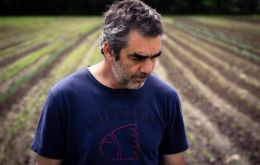
The drought in Argentina continues in several regions and has generated a delay of planting for the 2017-18 season. A report authored by the institution AgroEducación indicated that La Niña, though subtle, already impacts the region with temperatures above normal and scarce rains.
-
Wednesday, January 3rd 2018 - 10:19 UTC
Lack of rainfall in Buenos Aires province affecting soy planting and prices
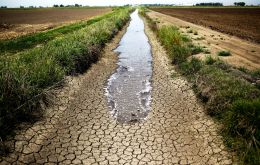
Argentina's bread-basket province of Buenos Aires will remain mostly dry over the days ahead, meteorologists said on Tuesday, after reporting scant rains over the weekend in the country's biggest and most productive farm area.
-
Saturday, December 23rd 2017 - 09:46 UTC
Chemicals less and less effective against Asian rust in Brazil's soybean fields
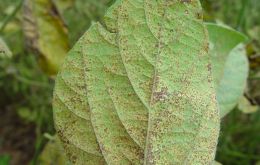
Over almost two decades, a plant disease known as Asian rust has infiltrated soybean fields across Brazil -- the world’s biggest exporter of the versatile oilseed used in countless consumer products. But the pathogen has become so resistant to chemicals meant to kill it that many farmers spray several times during their growing seasons, and still endure output losses.
-
Friday, December 8th 2017 - 07:49 UTC
Monsanto confident a soy seed patent dispute in Brazil will uphold

U.S. seeds company Monsanto Co is confident Brazilian courts will uphold its Intacta RR2 PRO soy seed patent despite a challenge from grain growers in the state of Mato Grosso, the company’s chief of South American operations said this week.
-
Friday, November 4th 2016 - 19:44 UTC
Brazilian soy and corn yields on the rise, according to Conab data

Brazilian farmers’ soy and corn yields have been on the rise, according to data from Conab, an agency from the Ministry of Agriculture. Conab just issued a report putting numbers to the yield growth numbers, and it’s clear that not only are acres on the rise for both soybeans and corn, but productivity is up, too.
